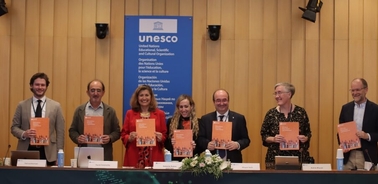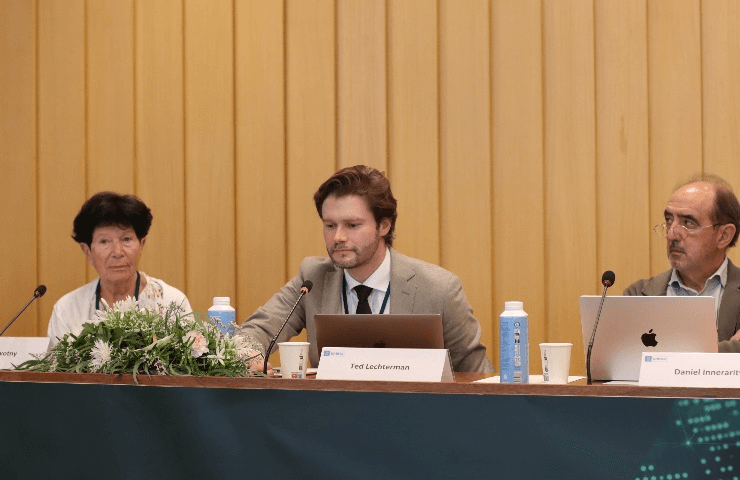Theodore Lechterman leads panel at UNESCO's Policy Dialogue on AI Governance

The UNESCO Chair in AI Ethics and Governance at IE University moderated a panel, followed by a keynote speech from Daniel Innerarity.
Theodore Lechterman, Assistant Professor of Philosophy at IE School of Humanities and holder of IE University’s UNESCO Chair in AI Ethics & Governance, participated in a Policy Dialogue on AI Governance in Paris. The event sought to take stock of UNESCO’s progress on AI governance and strategize solutions to emerging challenges. This newly established platform of international experts advise organizations worldwide on the implementation of the UNESCO Recommendation on the Ethics of AI, the most widely-endorsed global guidelines on the responsible adoption and regulation of artificial intelligence.
Participants discussed the status and next steps of UNESCO’s implementation tools and debated solutions to new problems in AI governance. While many challenges remain, there are clear signs of progress in global efforts to leverage AI responsibly, such as 53 countries now pursuing or having completed UNESCO’s AI Readiness Assessment Methodology (RAM).
Lechterman moderated a public session on the fraught relationship between AI and democracy, focusing on a landmark report by philosopher Daniel Innerarity, with opening remarks by Miquel Iceta, Permanent Delegate Ambassador of Spain to UNESCO, and Gabriela Ramos, UNESCO Assistant Director-General.
Innerarity's report highlights some of the clashes between algorithmic reasoning and democratic reasoning, and the risks these create for democratic life. In Innerarity's view, AI reduces humans to data points and treats them as passive consumers. This is diametrically opposed to the democratic conception of the citizen, which understands people as capable of — and entitled to exercise — reflection and autonomy. The panel dug deeper into these issues (and more) with several luminaries: Helga Nowotny (ETH Zürich), Piergiorgio Donatelli (Sapienza Università di Roma), Joanna Bryson (Hertie School), Merve Hickok (Center for AI and Digital Policy), and Mark Manantan (Pacific Forum).
IE University’s UNESCO Chair in AI Ethics & Governance was formally incorporated in March and is a flagship initiative of IE School of Humanities. The Chair fosters path-breaking research, education, outreach, and collaboration with local and global partners to advance ethical reflection and best practices on artificial intelligence.
